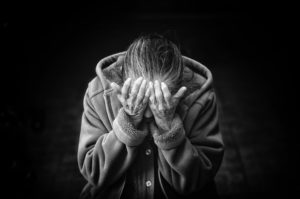by Jenny Rose | Jul 16, 2022 | Emotional Intelligence, Feelings, Happiness
Years ago, when I was seeking a divorce, my lawyer asked me one day in the middle of my frustration and fear regarding custody of my boys if I wanted to be right or I wanted to be free.
It was one of the best questions anyone had ever asked me, and I didn’t have to think about my answer.
“Free,” I said. In that moment, I gave up on my rather naïve ideas about justice and cooperation in the process of divorce. I stopped worrying about being right. I understood no one but me was interested in the best situation for the kids. I fought for as much freedom as I could get, not for myself, but for them.
The memory came vividly back to me when I read this article by Arthur Brooks from Big Think. The author describes an interaction with a successful but unhappy financier, who remarks she would rather be special than happy. Her definition of special has to do with professional success. Ordinary people, she says, can be happy. She wants to be more special than that.

Photo by Andrew Loke on Unsplash
I thought about that choice, and I wonder, are special or happy the only two choices? Is there some rule stating one can’t be special and happy?
Why do we believe we have to give up something to be happy?
I’ve written a series of posts about happiness, inspired by the work of Martin Seligman, PhD. I went back and reread those posts.
Can ordinary people be happy but extraordinary people can’t?
Are ordinary people happy?
Is ordinariness shameful? Is happiness a goal only for those who can’t be special in any way, a kind of booby prize?
I don’t believe happiness has anything to do with being ordinary, extraordinary (as defined by whom?) or somewhere in between. It’s a lot more complicated than that. I wonder if we’re losing our ability to distinguish between temporarily satisfying our addictions, expectations, and compulsions while numbing our pain and fear, and feeling true, enduring happiness.
Happiness, after all, is a state of being rather than a state of doing. To some degree we must allow it – give it time, space, and a safe place to exist. It’s not something to pursue or try to create. It’s already within us, somewhere.
(This creation of space, by the way, is a pillar of minimalism. If everything is important, nothing is. One discards until what’s truly important is revealed.)
I jotted down this statement: I’d rather be dutiful, loyal, responsible, a good parent/partner/daughter/sister, rich, powerful, in control, right or successful, than happy. I didn’t think hard about it. I have chosen everything on that list at one time or another in my life. I haven’t chosen happiness or seen it as a choice, and I’ve been unconscious of my belief that happiness can’t coexist with my standards of integrity.
Happiness just doesn’t seem like a worthy goal to me. It’s not culturally sanctioned. Ambition, power, wealth – those are worthy goals. Those are things that matter. Obviously (so obvious it goes without saying directly), those are the roads to happiness. One can be happy, but it must be earned, and happiness is not the goal, just a nice bonus. The real goal is productivity. The shadow side of productivity is consumption.
But productivity is a moving goalpost, and it doesn’t make us happy.
It occurs to me we talk about happiness or unhappiness as a blanket state of being, but it’s really more like Swiss cheese. I feel chronically unhappy about some aspects of my life, and chronically angry about others. Yet every day I also feel periods of happiness when I allow it and take the time to be present in the moment.

When I allow myself to play in the garden, I feel happy.
When I allow myself to settle down with a good book, I feel happy.
When I allow myself to be creative, I feel happy.
When I allow myself to be who I am, I feel happy.
Gardening, reading, being creative, and living authentically take time, intention, discipline, and energy. Discipline. Can you believe it? It takes discipline to remember I’m not a human doing, but a human being. My intrinsic worth as a being isn’t tied to productivity or consumption. The treadmill of productivity is easy. Stepping off and relaxing takes discipline. And that’s not only me.
The nature of addiction (physical and mental dependence) in any form is that it gradually pushes everything else out of our lives. Our addiction consumes our time, energy and money. Anything not in service to the addiction is discarded, including relationships, health, free time, quiet time, and creativity. Our addiction becomes our primary relationship and those around us quickly learn we’re not available for anyone or anything else.
Workaholism and perfectionism are addictions, along with productivity, toxic positivity, substance abuse, eating disorders, over-exercising, and sex addictions.
Happiness is power. That which takes us away from our happiness is disempowering.
Why do we live in, perpetuate, and enable a culture that relentlessly and brutally disconnects us from happiness?
That’s easy. Our individual happiness does not benefit capitalism, because happiness can’t be bought or sold. Capitalism benefits from an unhappy population brainwashed into believing productivity and consumption will make us happy. Who benefits from violence, division, hatred, manipulating our fear, restriction of choice, and disconnecting us from the simple pleasure of happiness?
Those currently in power and determined to stay that way, both governmental and corporate.
Who allows and enables that power-over stranglehold?
We do.
But we could change our minds.

Photo by Cristian Newman on Unsplash
by Jenny Rose | Jul 9, 2022 | Power
When we bought our new house, a flagpole and the American flag came with it.

Photo by David Beale on Unsplash
The day Roe v. Wade was overturned, we took down the flag. I don’t recognize America anymore. The democracy I grew up in is languishing and I no longer feel our government represents the best interests of people or planet. It certainly isn’t interested in surviving and thriving for any but a select few power-over people who are impotent, incompetent, and emotionally bankrupt, not to mention unbelievably stupid. These times are the logical end stages of capitalism. We are so far astray we have made money into a god and worshiping that god has us all on our knees and many of us face down in the street being murdered. I’m not celebrating. I’m grieving. I’m angry.
The pandemic years and increasing awareness and visibility of systemic racism brought the discussion of freedom into daily discourse. What freedom is. What freedom isn’t.
Freedom is power. People who work for power with others focus on supporting an equitable playing field for all. That means some people need to lose some power and others need to have theirs restored so we all have equal access to resource.
Power, by the way, is not defined by money. We’ve been culturally brainwashed to believe it is, but it’s not. Who benefits from the persistent and relentless narrative insisting it is? Are you benefitting?
People who work for power-over are afraid. Fear breeds hatred. Other words for hatred are racism, homophobia, and bigotry. Power-over people, like any tyrant, fear rebellion, and all their energy goes into controlling information and brutally silencing dissent or discussion.
What we are allowing to take shape is a dystopian world. It’s not a movie we’re going to walk out of in two and a half hours. It’s not a science fiction book. It’s not a role-playing game.
It’s real, and it’s really happening. Just like climate change, it’s not something to scare or depress ourselves with and then, like Scarlett O’Hara, tell ourselves we’ll think about it tomorrow. Tomorrow was yesterday. Climate change and the end of democracy are not far-off footsteps in the night-dark and scary forest. They’re here. They’re now. They’re in our tent with us.
Here are characteristics of a dystopian society:
- Communication (misinformation) is used to control citizens.
- Information (facts), critical thinking, and freedom are restricted.
- Citizens worship a figurehead or ideology.
- Citizens perceive they are under constant surveillance.
- Citizens fear change, new information, or new experience. Anything or anyone different is perceived as a threat to existence. Conformity is paramount. Individuality and dissent are stamped out.
- Citizens are stripped of their humanity.
- The natural world is raped, poisoned, and distrusted.
- Controls force citizens to accept the illusion of a perfect utopian world.
Dystopian controls include corporate, bureaucratic, technological, and philosophical/religious entities.
Welcome to the dawn of dystopia, people. For most of us, freedom is slowly vanishing, but it’s still possible to reclaim it. There are people who see clearly and speak and write the truth. Some of us believe in the common good and in living in service to others, to justice, and to the planet. We can fight. We can refuse to be silenced. We can hold fast to one another and balance the growing hate in the world with our love and righteous anger.
I’ll leave you with a couple of thoughts from Toni Morrison:
“The function of freedom is to free somebody else.”
“Freedom is choosing your responsibility. It’s not having no responsibilities; it’s choosing the ones you want.”
Be well. Take care of yourselves and each other.

Photo by Sue Tucker on Unsplash
by Jenny Rose | Jun 18, 2022 | Emotional Intelligence, Feelings
Food for thought from Seth Godin: Productivity is not measured in drama.

Photo by roya ann miller on Unsplash
Sometimes life seems to me like a giant factory. The owners are busy manufacturing fear and drama day and night, making money hand over fist. We the people sit in little cubicles, brainwashed and manipulated by the factory owners, responding to fear and drama stimuli for all we’re worth (and much more than we’re worth, monetarily speaking) and providing a gigantic, endless river of profit to the few at the top. After a few months in the factory, we’re promoted; we’ve learned to create fear and drama all by ourselves! Now we can model good business practice for the newbies.
Success!
For someone.
Fear and drama. Two top money-makers. Naturally, a capitalist culture would be constructed to relentlessly promote them, and any vehicle for increasing fear and drama would have enormous lucrative potential. Hence, staggering financial power and influence in the form of social media, conspiracy theory centers and advertising.
Information (facts) and critical thinking mitigate fear, so let’s demonize them and weaken public education so such heretical things are not taught.
Breaking our addiction to stuff and stimulation, instant gratification and validation, might allow us to realize how hollow and expensive those addictions are, so let’s not give people a single second in which to be tranquil and quiet.
Changing our belief that having and doing are more important than being, that doing more faster will lead to greater productivity and thus more money (with which we can buy more) will hurt the economy. Let’s make that unpatriotic, unpopular, and offensive.

Photo by Heidi Sandstrom. on Unsplash
Let’s emphasize and support division, outrage, hatred, bigotry, procrastination, ignorance, catastrophizing, gaslighting, urgency, “alternative facts”, and disempowerment. Let’s prioritize making a profit.
Let’s train the culture to demand drama, and richly reward those who disseminate the most drama to the public. Let’s give those people power, authority, awards, and our money. Let’s give them our time and attention, our applause, loyalty, and praise. They entertain us. They tell us what we want to hear. They will be our saviors in a terrifying world. Without them, we’ll lose everything. (Starting with our guns.)
Manufactured drama. Manufactured fear. As though life doesn’t have enough organically grown drama and fear.
But one can never have enough money, right? And fear and drama are sound investments. Better than blue chip stocks, because they perform best in the worst of times.
At some point, we hitched drama onto productivity and conflated them. Godin reminds us productivity and drama are not the same or even related, unless it’s an inverse relationship.
We don’t have to choose crisis. We can build slack into our lives, quiet, unplugged time, time away from a screen. We don’t have to feed drama or get involved with it. We certainly don’t have to pass it on. We don’t have to attach to fear. We can unhook from fearful media, take our time and attention away from it.
Fear and drama don’t help us effectively manage our lives or make positive contributions. They don’t make us more humane or better problem solvers. They don’t help us find true love or good health. They’re neither creative nor connecting. Urgency is not high-quality fuel for life, and it doesn’t help us make empowered choices.
If we want to be productive, we need to disengage from fear and drama.

Photo by Annie Spratt on Unsplash
by Jenny Rose | Jun 11, 2022 | Power
Can you walk away? Will you choose to?

Photo by Dan Gold on Unsplash
This piece from Leo Babauta hit my Inbox recently, and I’ve been turning it over in my mind.
Before I go any further, I need a moment to sit here and shudder. Because walking away is hard. It’s devastating. It’s an atomic bomb.
At least it’s felt that way when I’ve done it in my personal life, probably because I’ve waited, dithering, denying, distracting, hanging on and trying harder, so long for things to change. For me to change. For the other person to change. For divine intervention. For some event or person to rescue me.
By the time I do walk away I’m utterly exhausted and used up, and I hate myself far more than those affected by my walking away, though they, of course, don’t understand that. The relief inherent in walking away, the freedom, the reclamation of personal power, have only made me hate myself more.
Babauta’s article doesn’t start with the interpersonal stuff, though. He comes at it from a minimalist perspective. Can you walk away from an unhappy job? From a new car? From a deal or negotiation? From a tempting but unethical situation in which you might gain? From a new gadget or toy you really want but don’t need and can’t afford? From being too busy, too noisy, too tired, too stimulated?
Can you walk away from what the neighbors think, or your family? Can you walk away from the belief you need any particular person in your life to be happy? Can you walk away from your hopes and the beautiful dream you know is never coming true? Can you walk away from a toxic situation you’re deeply invested in? Can you walk away from the things and/or people destroying you?

Photo by Ian Espinosa on Unsplash
If you can’t walk, can you crawl away? On your belly, clawing at the ground, sobbing, naked and alone, can you crawl away?
It’s more than that, though. Will you?
Most of us can walk away if we have to. Many of us have had to and have done it. But who hasn’t felt stuck, unable to walk away, no matter how dark and dirty our fantasies are of leaving it all behind?
(Come on, I know you’ve had that fantasy at some time or another. Get in the car and drive until … until you’ve reached the edge of the world, of your life. Until you’ve run out of money or gas. Until you hit the ocean. Until you can stop.
Or go out the front door and start walking without looking back. Disappear. Vanish like a drop of water in the desert. Become nameless, faceless, rootless, homeless.)
But sometimes we feel stuck. Forever. Or what might as well be forever, because in this moment we’re so tired, so drained, so empty, there’s no comfort in the thought that things will change someday. One day.
One day is too far ahead. We’re not sure how to get through this day. But we have to. And the day after that. And the day after that. We made promises. We have responsibilities, loyalties, duties to others. We’re the keystone, the essential piece, the glue holding it together. It depends on us. If we’re not there … what? What would happen? Would everybody die? Would their lives be ruined? Would the sky fall?
Would they stop loving us?
That’s the worst fear, isn’t it? They’ll stop loving us. We love them and we have to walk away and then they’ll stop loving us. How can anyone love us when we’ve walked away? How can we love ourselves? How can anyone ever understand?
Does love require we allow ourselves to be destroyed? Are we supposed to love others more than ourselves?
Or are we allowed to walk away if we must to save our own lives? But what if no one believes us?
(For God’s sake, stop whining! Stop making such a big deal out of everything! You’re so dramatic!)
The terrible, inescapable truth about walking away is if we can’t do it, we’ve given away part of our power. If we choose to do it and reclaim our power, the price can bankrupt us financially, mentally, and emotionally.
On the other hand, sometimes the simple act of walking away sets us free in extraordinary, joyful ways we can’t even imagine.
Sometimes (perhaps hardest of all) we face annihilating consequences and experience freedom.
Can I walk away?
Will I choose to?

By Marianna Smiley on Unsplash
by Jenny Rose | Jun 4, 2022 | Power
All my life, when I tackle a problem or a challenge, if I don’t succeed I assume it’s about me. I’m not fill-in-the-blank-enough. I’m a failure. So, I work harder. I perseverate. I obsess. I refuse to give up. I try, and I try, and I go on trying until I’m used up, and then I try some more.

Photo by Hailey Kean on Unsplash
Every now and then I get jarred into a wider perspective and I suddenly understand some problems can’t be solved. Some challenges can’t be mitigated. Sometimes the change I’m seeking is not possible. This happened recently with a short note from Seth Godin in my Inbox titled “The Win-Win Fallacy.”
I’ve studied power dynamics for several years now, as regular readers know. One of my most important filters in evaluating others is whether they come from a power-over (win-lose) or power-with (win-win) perspective. This discernment is not necessarily loaded with judgement. In some cases, power-over is both effective and appropriate. In terms of personal relationships, though, I’m not eager to engage with people working for power-over.
The invisible problem (to me) with this filter is I haven’t thought of it as a continuum. I’ve thought of it as two isolated positions. You’re one, or you’re the other. (You’re with me or you’re against me.)
I abhor black-and-white thinking. Way too much of it in the world. It’s always a trap, and it always feels manipulative. Maybe one of the reasons I dislike it so much is I’m so prone to it myself. It sneaks up on me, completely invisible, and I’m chagrined when I realize I’ve fallen into it. Again. Aargh!
These few sentences from Godin point out many problems don’t have a win-win solution, especially problems that have been around a while. If there was a win-win, someone would have found it. Think about gun control, for example. (I know, I don’t want to think about it anymore, either, but our children are going to keep dying in schools until we figure it out.)
Maybe it’s not that I’m too stupid to find the win-win in any given situation. Maybe there isn’t one.
Maybe some problems can only be solved on a continuum of sort-of-win, sort-of-lose, or even definitely win-lose, at least in the short term. Maybe, as Godin points out, what we should work for is something better than we have now, a situation in which most people are happier than they are with the current status quo. This, by the way, is what’s known as compromise.

Photo by rawpixel.com on Unsplash
Time changes things. I’ve often lost in the short term but won in the long term, or vice versa. Winning and losing are relative positions, a snapshot of one moment in time. They can and do change. (A private prayer of thanksgiving here.)
We are obsessed with winning in this culture. We’ll kill others and/or ourselves in order to be right. We’ll lie, cheat, and steal to ensure we win. We elevate winners with power, money, and authority. Some people are unable to accept losing anything, ever.
People who operate from this perspective are unable to discuss, negotiate, or compromise. They have no interest in the price of their win, as long as they get it. They don’t care who loses, who suffers, who dies. They don’t care about justice. The win is all. Nothing else matters.
Then there are people like me who are convinced justice (always assuming we can identify and agree upon what’s just!) is desirable and achievable and must prevail at any cost. I’m equally obsessed with the belief that winning doesn’t matter a damn and people who think winning is power are pathetic. It doesn’t matter who’s right and who’s wrong. What matters is working together to figure out the greatest good for everyone, for all life on Planet Earth, most of which is not human, by the way.
But what if there’s not a win-win, in either the short or the long term? We’re losing animal species every day. Maybe certain kinds of human thinking and behavior should also go extinct. Maybe we need losers so the majority wins.
So the majority wins, not the most powerful minority. Just to be clear. And that means sometimes we need to be willing to lose something for the greater good. A small sacrifice. What a concept.
It’s tricky. I don’t want it to be tricky. I want it to be clear, because that’s easier. Win-lose, or win-win.
But I see it’s not clear. It is a continuum. Lots of shades of grey in there, lots of ways to win and lose at once, and even that changes over time.
On a purely personal level, I need to stop making myself and everyone else crazy with my neurotic obsession with absolutely equal power, a perfectly equal win. I do believe it can happen. I believe it’s possible. On the other hand, Godin has me convinced it’s not always possible. If I’ve tried as hard and as long as I can, maybe the problem isn’t me at all. Maybe the only solution(s) are somewhere between the pure and saintly win-win and the power-grabbing win-lose.
Life is complicated.

Photo by Quino Al on Unsplash












